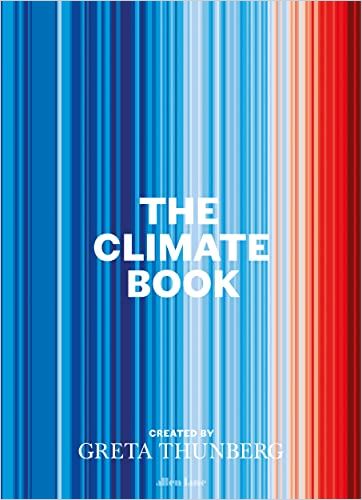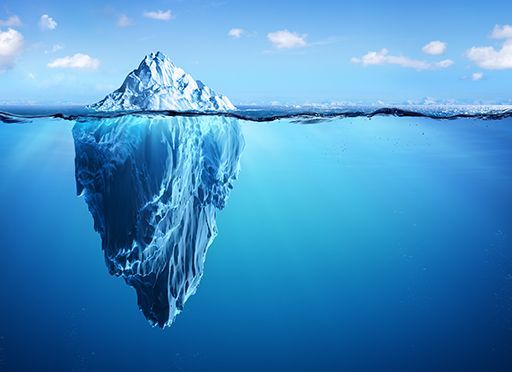Climate activist Greta Thunberg compiles essays on climate change by scholars, scientists and advocates.

How To Save the Planet
Greta Thunberg – author of No One Is Too Small to Make a Difference and one of Time’s 100 most influential people in the world – may be the world’s best-known climate activist. This incisive collection of essays, edited by Thunberg, covers many aspects of the climate crisis, details the causes and effects of climate change, and calls on governments, organizations and individuals to change their ways if the planet is to survive.
Climate Change
The climate crisis will lead to species extinction, rising sea levels and increasingly extreme weather events. The release of greenhouse gases, primarily from burning fossil fuels, drives the temperature rise. To arrest global warming, people must rethink their conventional systems of economics and consumption.
Saving the world is voluntary.Greta Thunberg
World leaders have signed international agreements promising to reduce their nations’ emissions, but they use loopholes and accounting tricks to conceal their lack of action. To meet national climate targets, countries must reduce their per capita emissions to about one metric ton per year. The United States, Canada and Australia, however, produce per capita emissions in the double digits.
Humanity’s impact on the world accelerated during the Industrial Revolution. Since then, people have deforested large swaths of the planet, caused the extinction of numerous species and polluted the oceans. The warmer atmosphere, a result of greenhouse gas emissions, promotes increased evaporation of seawater, which releases additional greenhouse gases the sea previously absorbed.
Climate change hurts the health and viability of many species, including human beings. For example, it causes 37% of all fatalities due to heat. It also sets the stage for future pandemics – three-quarters of infectious diseases originate in animals, and the destruction of wildlife habitats exposes humanity to an increased risk of animal-borne diseases.
Atmospheric Circulation
Climate scientist Friederike Otto explains that climate change has altered “atmospheric circulation,” which affects how weather patterns form and changes how, where and with what intensity they manifest. Climate change contributes to rising sea levels, which intensify the destructive force of hurricanes and other storms.Climate-related weather and environmental effects include heat waves, droughts, floods and wildfires.
University of Potsdam professor Stefan Rahmstorf, founder of the “Real Climate” blog, points out that increasing evaporation adds to global rainfall and the warming oceans energize to pical cyclones.
Illusory Progress
As governments cultivate the belief that future technologies will resolve climate change without people having to change their modern lifestyles, world leaders repeatedly set nonbinding climate goals and fail to meet them. No world leader has ever called for compiling accurate data on emissions, and it is unlikely any ever will.
Even as the scientific community became aware of what was about to unfold, it was extremely difficult to awaken politicians to the dangerous nature of the situation we were in. (atmospheric scientist Michael Oppenheimer of Princeton University)
Kevin Anderson, professor of energy and climate change at the Universities of Manchester, Uppsala and Bergen, reports that since the Intergovernmental Panel on Climate Change’s (IPCC) first warning about climate change in 1990, more carbon dioxide has been emitted into the atmosphere than throughout all of history before that time.
Earth scientist Rob Jackson of Stanford University notes that even if the world successfully eliminates emissions, holding global temperatures rise to the crucial 1.5°C [2.7°F] maximum will require removing some of the excess CO2 people have already released into the atmosphere. But carbon dioxide “drawdown” technologies are expensive. One optimistic estimate puts the cost of capturing excess atmospheric CO2 at $100 per metric ton. Current “direct-air” operations cost about $250 to $600 per metric ton. Controlling increased temperatures would require employing such operations to remove billions of metric tons of CO2 annually.
Drawdown concepts include the removal of methane, an even more powerful greenhouse gas than CO2. Removing small portions of methane could provide big benefits for the atmosphere. Removing methane involves oxidizing methane molecules to transform them into molecules of CO2, the less powerful greenhouse gas.
According to a United Nations report, planned global fossil fuel production by 2030 will be more than double the allowable amount required for the world to meet the 1.5°C limit in temperature rise. Achieving the necessary reduction in emissions requires rethinking the foundations of modern society.
However, individuals can take action for the climate, including adopting a greener lifestyle and advocating for the environment by spreading the word about the climate crisis and other activism.
“We have cut down more than half the trees…”
The populations of the wealthiest nations of the Global North have caused most of the climate crisis through an unsustainable economic system kept afloat by constant consumption. The world’s wealthiest people – the top 10% – create half of the world’s CO2 emissions.
Since the rise of human civilization, we have cut down half of the trees in the world, wiped out more than two-thirds of the wildlife, and filled the oceans with plastics, as well as initiating a potential mass extinction and a climate catastrophe.Greta Thunberg
The Global South’s poorer nations, which have contributed the least to the crisis and have the fewest resources to spend on adapting, bear the brunt of the catastrophe. That means any effective climate agreement must contend with issues of responsibility and fairness, including consideration of history – for example, recognizing that rich nations accumulated wealth through centuries of exploitation, colonialism and slavery.
Economist Kate Raworth of Oxford University’s Environmental Change Institute argues that modern societies need to “recover from consumerism.” Governments can reduce consumption by restricting private planes and fossil-fueled cars, bolstering public transport and making cities more conducive to biking.
Refusal to Compromise
Greta Thunberg is famous for her refusal to countenance compromise, her profound contempt for those who contribute to increased global warming, and her direct, astringent prose. All of these attributes are on display in this remarkable catalog of essays. The essays’ commonality is the passion and scientific, political, economic and social rigor of their authors. None of these authors writes as if preaching to the already converted. They all summon facts and evidence to support their positions, making this a powerful, informative handbook for those who know little or nothing about climate change as well as a source of in-depth knowledge and inspiration for those already deeply involved in the struggle against it. Thunberg and her contributing experts clearly detail the actions humanity must embrace to prevent disaster.





